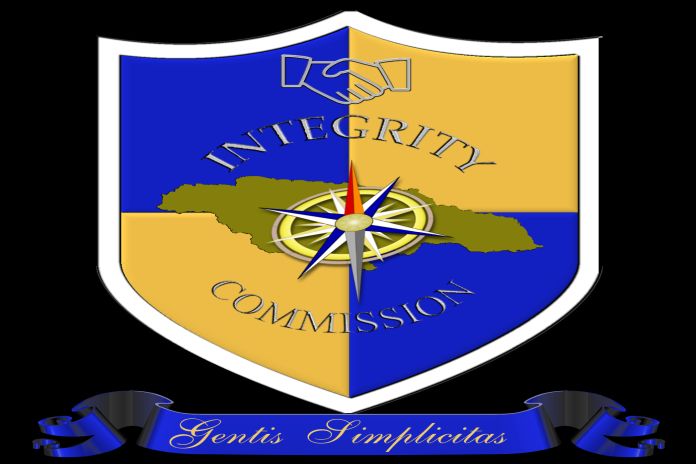KINGSTON, Jamaica – On January 25, 2022, Transparency International (TI) released its 2021 Corruption Perception Index (CPI), revealing that Jamaica had fallen one place, from position 69 out of 180 countries, to position 70 out of 180 countries. Jamaica’s 2020 CPI score of 44 out of 100, where 0 means ‘Highly Corrupt’, and 100 ‘Very Clean’, remained unchanged for 2021.
In the 20 years that TI has been ranking Jamaica, the country has averaged a CPI of only 37.8 out of 100. A CPI score of below 50 means that a country has a serious corruption problem. This, TI says, is characterized by prevalent bribery, lack of punishment for corruption, as well as public institutions that do not respond to citizens’ needs. Jamaica has been firmly planted in this category for two decades.
The only reason that can be discerned for TI’s refusal to elevate Jamaica’s 2021 CPI score is the sole public remarks that it has made about Jamaica in its report. They are outlined below and are instructive.
“Jamaica has been struggling for several years. It has made some progress – the establishment of the Major Organized Crime and Anti-Corruption Agency as an independent body, and the corruption cases recently pursued by the Auditor General’s Department are two examples – but this comes alongside significant resistance to (anti-corruption) reforms from many politicians in the country.” (Integrity Commission’s emphasis).
The Integrity Commission is not surprised by TI’s statement. The Commission has advanced repeated recommendations for revisions to be made to Jamaica’s anti-corruption legislative and policy frameworks, but to little or no avail. This has been done in the Commission’s three annual reports to parliament, in its routine Investigation Reports, as well as in its Special Position Papers, two of which were recently tabled in parliament before the Integrity Commission Parliament Oversight Committee.
It should not go unnoticed either that it was during the Commission’s most recent appearance before the Parliament Oversight Committee, that its executive director, Greg Christie, had intimated that a failure to heed the Commission’s recommendations could adversely impact Jamaica’s standings in the Global Corruption Perception Rankings.
The Commission’s recommendations are considered recommendations. The Commission believes that its recommendations, if implemented, will better position it, as well as Jamaica, to advance the effectiveness of the fight against the scourge of corruption that appears to have placed the country in a vice grip.
It is important to note that the making of these recommendations are among the Commission’s expressed functions, as mandated by parliament itself. The Commission, therefore, has a duty to make them and the Parliament, it is assumed, in turn, has a corresponding obligation to give them serious and timely consideration with a view to implementing them.
Section 6 (1) of the Integrity Commission Act, among other things, provides that “the functions of the Commission shall be to:
- Monitor current legislative and administrative practices in the fight against corruption;
- Advise the minister on the adoption of international best practices relating to the prevention of corruption; and
- Advise the minister on such legislative reform as the Commission considers necessary to reduce the likelihood or the occurrence of acts of corruption.”
The second schedule to the Integrity Commission Act, Paragraph 4, is even more specific. It states that the Commission’s Annual Report to Parliament should contain “any recommendations for changes in the laws of Jamaica, or for administrative action, that the Commission considers should be made as a result of the exercise of its functions”.
Having regard to all of the foregoing circumstances, the Commission, therefore, respectfully calls upon the government and the parliament to give serious and urgent consideration to its several expressed recommendations.
The Commission takes note of the recent announcement of the establishment of a Joint Select Committee of parliament to review the Integrity Commission Act to consider recommendations for its revision. This is a requirement of Section 60 of the Integrity Commission Act.
The Commission wishes to publicly acknowledge that it has been invited to make written submissions to the Committee and to appear before it, once the public sessions are convened. The Commission looks forward to this opportunity and commends the government and the parliament for their stance.
The Commission is also compelled to once again place on the public record, the fact that the government has so far positively responded to its requests and recommendations for the human and budgetary resources that it requires to discharge its functions under the Integrity Commission Act.
The Commission has publicly stated before that the government, through its ministry of finance and the public service, and a Special Committee of the Houses of Parliament, have both approved a critical reorganization and expansion of the Commission’s staff structure.
While the Commission is grateful for this support, unfortunately, however, it has so far been unable to fill the great majority of the approved positions since it continues to await the completion of the build-out of the new and expanded office space that it acquired in late 2021.
The build-out has been delayed by a number of factors, inclusive of delays in the associated works, logistics and procurements, some of which have resulted from the local Covid-19 containment measures, as well as the impact of the pandemic on the global supply chain and the availability of semiconductors. The Commission, however, expects that these difficulties will be resolved in the short term and wishes to advise that its obligation to pay rent on the leased premises has not yet commenced.





